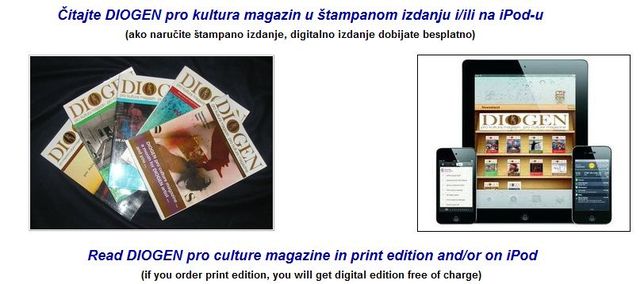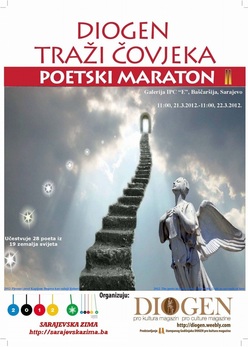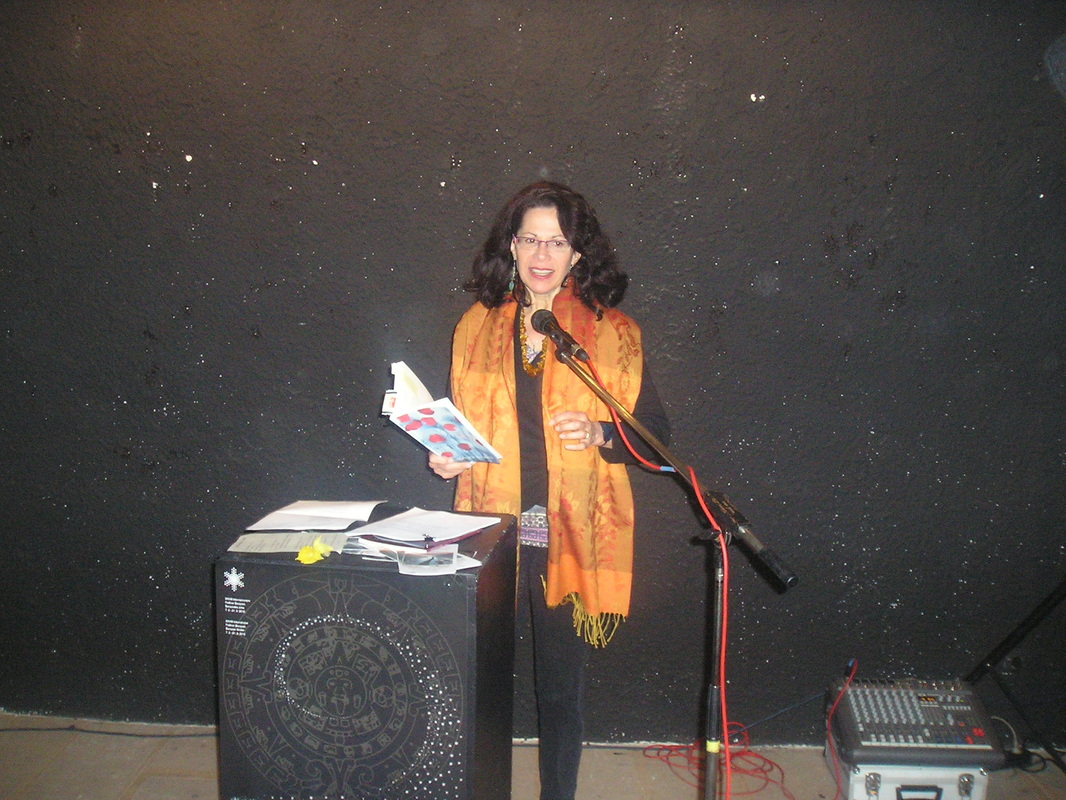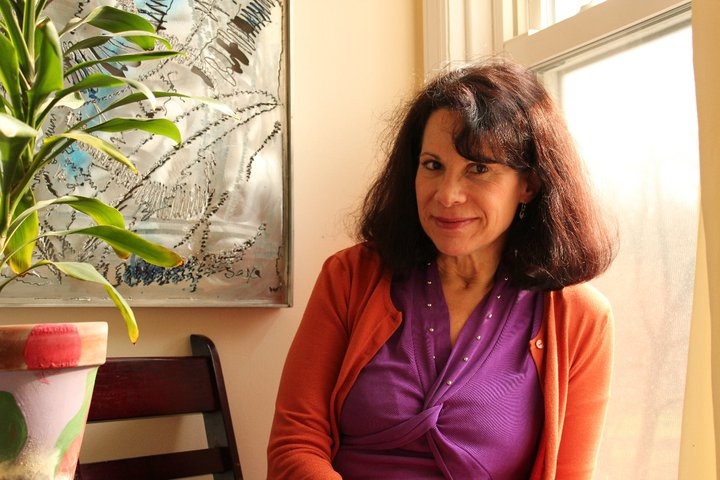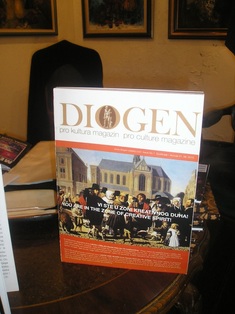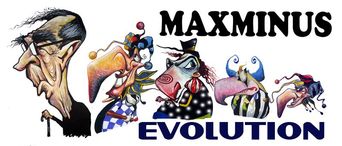|
NA LISTI Od 04.8.2010.g. /
LISTED SINCE August 4th, 2010 among leading European magazines: |
All Rights Reserved
Publisher online and owner: Sabahudin Hadžialić, MSc Sarajevo & Bugojno, Bosnia and Herzegovina MI OBJEDINJUJEMO RAZLIČITOSTI... WE ARE UNIFYING DIVERSITIES |
Heather Thomas, Kutztown, Pennsylvania, USA
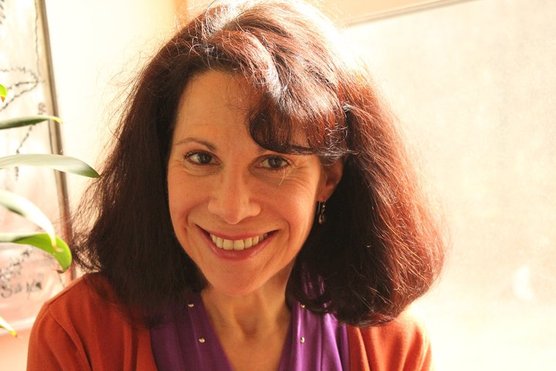
photo by Ian Forester
Heather Thomas of Reading, Pennsylvania, U.S.A., is the author of six poetry books, including Blue Ruby (FootHills Publishing, 2008), Resurrection Papers (Chax Press, 2003; 2011), and Practicing Amnesia (Singing Horse Press, 2000). Her poems have been translated into Spanish and Lithuanian. Sometimes under the name H.T. Harrison, her work has been published in 35 journals and anthologies, including the Wallace Stevens Journal; American Letters and Commentary; Common Wealth: Contemporary Poets on Pennsylvania; Cardinal Points, part of the Russian press Stovset project; and Only the Sea Keeps: Poetry of the Tsunami.
She has given 200 readings in the U.S., Argentina, Ireland, and Russia. Her work has been recognized by the Academy of American Poets, the Gertrude Stein Awards in Innovative American Poetry, and the Pennsylvania Council on the Arts.
Critics have called her poems “brilliant, hard-edged, and technically accomplished.” Poet Alice Notley wrote that Blue Ruby is “a beauty, composed by a fearlessly compassionate intelligence. . . Thomas joins a growing band who can’t help but unite the personal and political. She demonstrates that the ‘pearl-of- great-price’ is anyone, anywhere, self or other one. The poems hurt but have a carved, lit-up surface, red and blue and many other colors.”
Resurrection Papers, reissued in 2011, was translated into Spanish by Argentine poet Patricia Díaz Bialet and published in a bilingual edition in Buenos Aires. Critic Graciela Maturo described it as “a construction of a poetics that makes the poem into a door to the marvelous-real.”
Five poems from Practicing Amnesia were translated into Lithuanian by Tautvyda Marcinkeviciute and published by VAGA, Vilnius, in the volume Poezijos Pavasaris, edited by Vladas Braziumas and Eugenijus Alisanka.
Writing in the Rain Taxi Review of Books, Patrick Pritchett said of Practicing Amnesia, “Thomas is able to shift registers between the personal and the public; under the scrutiny of her gaze, the distance separating them narrows. The history of her parents and grandparents—counterpointed here with family photos—becomes the history not only of our era, but a moving account of the struggle to rescue presence from continual loss.”
Cynthia Hogue, writing in HOW2, an online journal of women’s poetry and scholarship, wrote, “This is a cultural and familial history that practicing amnesia has marked, a distancing technique to survive suffering. . . that both memorializes a history of loss and redeems it.”
Thomas was born in New York and grew up in Berks County, Pennsylvania, where she was Poet Laureate from 2008-10. She holds master and doctoral degrees from Temple University, Philadelphia. She is a professor of English at Kutztown University of Pennsylvania. Her literary essays have been published in Approaches to Teaching H.D.’s Poetry and Prose (MLA, 2011), The Writer’s Chronicle, The Emily Dickinson Journal, and We Who ‘Love To Be Astonished’: Experimental Feminist Poetics and Performance Art (University of Alabama Press).
Website: http://faculty.kutztown.edu/hthomas
She has given 200 readings in the U.S., Argentina, Ireland, and Russia. Her work has been recognized by the Academy of American Poets, the Gertrude Stein Awards in Innovative American Poetry, and the Pennsylvania Council on the Arts.
Critics have called her poems “brilliant, hard-edged, and technically accomplished.” Poet Alice Notley wrote that Blue Ruby is “a beauty, composed by a fearlessly compassionate intelligence. . . Thomas joins a growing band who can’t help but unite the personal and political. She demonstrates that the ‘pearl-of- great-price’ is anyone, anywhere, self or other one. The poems hurt but have a carved, lit-up surface, red and blue and many other colors.”
Resurrection Papers, reissued in 2011, was translated into Spanish by Argentine poet Patricia Díaz Bialet and published in a bilingual edition in Buenos Aires. Critic Graciela Maturo described it as “a construction of a poetics that makes the poem into a door to the marvelous-real.”
Five poems from Practicing Amnesia were translated into Lithuanian by Tautvyda Marcinkeviciute and published by VAGA, Vilnius, in the volume Poezijos Pavasaris, edited by Vladas Braziumas and Eugenijus Alisanka.
Writing in the Rain Taxi Review of Books, Patrick Pritchett said of Practicing Amnesia, “Thomas is able to shift registers between the personal and the public; under the scrutiny of her gaze, the distance separating them narrows. The history of her parents and grandparents—counterpointed here with family photos—becomes the history not only of our era, but a moving account of the struggle to rescue presence from continual loss.”
Cynthia Hogue, writing in HOW2, an online journal of women’s poetry and scholarship, wrote, “This is a cultural and familial history that practicing amnesia has marked, a distancing technique to survive suffering. . . that both memorializes a history of loss and redeems it.”
Thomas was born in New York and grew up in Berks County, Pennsylvania, where she was Poet Laureate from 2008-10. She holds master and doctoral degrees from Temple University, Philadelphia. She is a professor of English at Kutztown University of Pennsylvania. Her literary essays have been published in Approaches to Teaching H.D.’s Poetry and Prose (MLA, 2011), The Writer’s Chronicle, The Emily Dickinson Journal, and We Who ‘Love To Be Astonished’: Experimental Feminist Poetics and Performance Art (University of Alabama Press).
Website: http://faculty.kutztown.edu/hthomas
VILLA AMIRA, Street Ante Starčevića 33,
|
LP vinyl sell from
|
|
Eksperiment života
Vjerujući da može omeđiti vlastiti ponos i pod paževe noge baciti ostatke sanjajućih namjera, poezija Heather Thomas nas kraljevski hrani. Ne ostacima vec viđenih deminutiva, onomatopeja, parafraza, poređenja i metafora, već izuzetno pitkih eksperimentalnih vizija sopstvene osobnosti. Naglašenost suosjećanja sa drugima ovdje nije margaritas ante portas čuđenja, već conditio sine qua non znanja. Poetskog, toplog i iskrenog. Čak i kada nas hrani ostacima. Svoje duše. Neposredne, inspirativne i, nadasve, upozoravajuće lucidne. Životne. Riječ urednika Sabahudin Hadžialić 12.2.2012. |
Experiment of life
Believing that she can delimit her own pride and under the pages foot throw the remains of the dreaming intentions, Heather Thomas is giving us royal food. Not already seen remains of diminutives, onomatopoeias, paraphrases, comparisons and metaphors, but very potable experimental visions of her own personality. Highlighting the empathy with others here is not Margaritas ante portas wonder, but a conditio sine qua non of knowledge. Of poetic, cordial and candid. Even when we have been fed by the debris. Of her souls. Spontaneous, inspiring and, above all, with lucid warning. Of life. Editor's word Sabahudin Hadzialic 12.2.2012. |
|
The Poet
Room to room, words amputate from memory so she stuffs herself with sound, the mirror spinning smaller and smaller, then bigger as fiction in the name of protection, crowned with a helmet, sealed with a coat of arms. Everyone is eating roast beef and trifle, the room strained to its laughing corners. No one notices her crawl out from under the table, rise through the chandelier, second-story floorboards, glass, plaster hurt, but pain is an awakening, feet first on a muddy bank. You can’t wash once in the same river. The water’s already in her ears tilting with vertigo though her brain does know she can drown or learn to think unsealed, unhelmeted she can see the freshets in their constantly changing flow. Topaz To build the bridge would require cutting into the broken wall ingathering the skin the topaz woman fire-hardened, clinging to midnight roamed the unspeakable halls (in the next room Alice had died the week before) we would never be finished no matter how old our bodies (my unremembering mother calls me to the place I will have to go that she has never named, as if we are tethered together, or by locating a point and filling my lungs I can leap mountain to cloud and not crash into snow finding her, as it turns out, not there at all but home saying how stupid to stay out in the cold) a cardinal singing on the locust branch churi, churi scratches under one wing flies away the branch stained scarlet at the tip gossamer and intimate tortuosity of an artery as the topaz woman careful and clear forged from mica and tourmaline rebuilds the bridge I cross over Third Eye My life is each inclusion: feather, fracture, fissure locked inside the eye, iris streaked by every virus, this is how the diamond grows: carbon under heat and pressure, heat and pressure millions of years, earth’s mantle pushing magma into crystal. Try to visualize co-valent bonding, stresses, cracks, root-like feathers, scars and abrasions we can’t outrun. Steps with breath count each inclusion, facets invisible millions of years. Try to visualize a diamond lattice: see the green flash above Afghan boys gathering mountain firewood, the incendiary light, the iris streaked by every virus flew high up, and in a second round, hovered over us and started shooting carbon under heat and pressure high in mountains outside Nanglam, Pech Valley, Kunar Province, scars and abrasions we can’t outrun forward operations, the base named Blessing. Hemad hit by shrapnel in his side hidden by branches that saved his life locked inside the eye because the weather was cold sons sent for firewood mothers picking up their sons in parts steps with breath count each inclusion visualize the error in the handoff how much longer the boys misidentified as insurgents who had attackedthe Blessing scars and abrasions we can’t outrun iris in the strongest terms regrettably the boys misidentified visualize the we are deeply sorry the death, death to America the error in the handoff sorry in the strongest terms death in the strongest terms transform the ignorance or wrongdoing in my being, visualize mothers, fathers, boys the ignorance or wrongdoing in my being how much longer explosion, bodies, war after war how much longer spectrum of a wisdom beyond picking up our sons in parts their sons our sons, their daughters our daughters spectrum of a wisdom beyond Living in the House of Wallace Stevens 323 N. Fifth Street, Reading, Pennsylvania It’s a quick climb to the second-floor apartment. Her legs were shorter then. Opening the door, she falls into the Wedgewood jar of the living room, a blue world whose patterned white figures freeze in their dance. Two steps up to her parents’ bedroom their turbulence knocks the wind out of her as she watches. I turn and walk as if leaving a stage Wallace Stevens descended in lonely purple air to find himself more truly and strange, the walls sliced open by words, so she covers her ears. The air roars as a plane takes off, rifling the books on shelves, tearing up the lives on paper, rewriting history as snow blowing in the same bare place between mind and sky, between thought and day and night. This is why the poet is always in the sun, pointing her finger at the moon, meeting his shadow in a book. I’m walking room to room, hearing echo clamber through summer dark. Sunburst through drawn shades ignites the edges. Smell of burning metal may be an overlooked pot but no one has cooked in this kitchen for years. She crosses the floor and is flooded with sun streaming through windows over North Sixth Street rooftops. I sit on a folding chair and feel the unraveling again in my veins. It’s always like this for the child not knowing what to do, how to live, then the light graces her like a hand, fills her all the way down the fire escape to her sandbox, then back up the iron stairs, drawn by radio music to paintbox, brush, paper Mother gave her, the glass of water, the Chordettes singing, she paints twelve shades of yellow across the page, big blue sun, small ruby bird. I enter the flower shining. The page shines all night, a flashlight under covers. She takes the brush, moves my hand across the page, still in her pajamas, the light keeps shining. My hand keeps moving wayward names to see what won’t go away. Her hand keeps moving far back all those rooms I came through. She writes this. From RESURRECTION PAPERS Late News from Neversink Couple marries then takes plunge thirty-four wildfires burn unattended teens torch stolen cars for kicks that toxic mix defining moments mother perfects her amnesia daughter regrets her performance: I went into a black booth, they gave me some lines, and I read them that toxic mix of guns, drugs a million panicked animals, blood senses race in the odd present tense the news employs in Sarajevo bombs slam a cemetery killing eight mourners, anarchy thumps in the chest with that girl who used a train to be with angels daughter signs for milk, water, gasoline, that toxic mix defining moments cracks even gravity can't fill: I’m one of you, and being one of you is being and knowing what I am and know she eats noodles from a jar inhales the bliss of absence floats on fire, water, air obsessed with alchemy and distance watches TV, certain she’s in paradise, tested every minute. |
In the Undifferentiated Country of Shadows
Would you like to dance? I’ve a book illustrating the stance. In the first picture, her hand covers her mouth because the photographer likes the look. Years later, she does this unconsciously when she has something to say. In Russia, every tombstone has a picture of the dead. Would you say your image contains or ruptures you? Nuclear bombs line the seabed and a man walks the moon. Her child’s image emerges from a wave of sound. She thinks all that mourning was a form of anger or the way the brain’s biochemistry can make you sad. Which memory is being yourself and which another? She writes a procession of evocative captions: The child pouring water into the birdbath wears an olive-green dress trimmed in velvet. The dress has a pattern of small black scrolls. When were the days that belief made words reach the dead? Shadows leap the gully, creek, median strip. That endless darkened hallway. In the thinning light of the garden, arborvitae make feathery sentinels. Grandmother has taught her perfect enunciation. As the water turns milky, she steps on stick legs into the bath. By evening she is covered with soft gray feathers and makes a mournful sound. Six hawks cruise over the river. The first three vanish on a rooftop hidden in trees. Others soar on wind above the rapids, wings tilting and balancing to ride the currents, dark bodies spread to light at the pale tips, dipping into the bare March thicket. Seeing ourselves from outer space, we are the alien. We Do Not Change to Disappear In the space between image and desire, she is a ring dove, a fish iridescent and slippery, with sharp gills. She stands in cold air on a mountain face. When she steps forward, the face drops away. She leaps around the floating debris of her life: bones of every fish she ever ate, empty wine bottles, bills and papers flying, used pens, orange peels, cake crumbs, sweaters ballooning without a body, candy wrappers, the floating pages of books, photos of dead relatives, those hats and scarves without the heads and necks inside. She arrives inside the transparent grape where she first met the mother and the grandmothers, the way Craig put each one of the fish he caught inside the mouth of the one caught before. He was catching dozens of fish, stuffing one inside the other until the first was stretched so wide and round it was a world. Standing in the hull of a small boat on a glassy lake, he was using nature as a metaphor, even though they were no longer situated in nature. He said she was in the boat with him, and he was just so sorry she wasn’t catching anything. She knew she was somewhere else. In the darkroom developing an image. In a lightbath, on the edge of waves. Thought #510,99: Doctor of Philosophy Impossible not to lie, couldn’t tell you, couldn’t find your ear to dark wood, carpet’s floral swirl, emotional field, out of fear I lied to burn or maybe to erect a theater of desire after desire the audience invisible from stage and velvet drapes you can choose any lie as the shawl women wore to keep their heads, afraid of small lettings, labyrinthine, stripped from history and love you went bareheaded onto the perfect surface I performed language on a banister under the dome though it was the blind leading the blind I knew to smile at lies in the name of protection I was raised that way I raised my knowledge as a question when you come right down to it, another way entirely to foil the thief who robbed me there’s no way to rise, the air pulls apart imprint of our hands together. Thought #115,051: Snow She is falling backward through a narrow channel, a force pulling her from behind. Her arms and legs reach out to me, her champagne dress billows, a golden mushroom, strands of dark hair piled on her head pull fast away. Transfixed, I watch her lightning fingers. She cries out, "My Beautiful Life!" Then, more faintly, "my beautiful life," until words stream beyond her fingers and the echo fades. Snow streams silvery toward me the way high beams throw flakes in your face. Hands and feet first, she begins to come apart, limbs, torso, and finally, her head until falling at the speed of light she becomes snow hurtling everywhere. I am afraid. At last I stop complaining. This too will be finished soon. Then the fear disappears. I fall away looking at the place I come from, my arms and legs. Waking Up Is Erasing the Roads Now the smell of raw earth, cookfire, damp fur of dogs carried on wind. The water undulates high on muddy banks, translucent as quartz or buds. Embryonic branches bend and rise, hiding bitter roots. Beginning again and again with a small thing, furious turns. I hold my notes and step forward, breathing. I let go of the notes and they swirl in air, paper and sound together, as leaves are. Agash in geology’s stacked floor where my uncertain feet break through to another level. I hold out empty arms. Error, love me. We rise in the firefly night. There’s a spring of our ink on the same page. When we walk, trees blow down behind us so we can’t go back. Only arrival in that wild land. Rain drums the mossy shed roof: March fourth. Brood of chalky bones, sycamore dawn. Mulberry limbs akimbo. Street slicked into streams. Nothing alive is static or escapes disturbance of the will to silence. History is still loss. River roils brown with branches and debris, decades of powdery sediment dredged and churning. Nothing to be but wet. From BLUE RUBY Cleave for Catherine Seduced by hunger, displaced. Black trees difficult to part, divide. Ice, the hardness it gives to mine driven and aimless, to mine as in descent. When pleasure carries layers of disaster with a cutting blow, and water and wind fill caverns, you climb out torn, beholder, hunter’s sound in your throat split by withholding, you must be torn, clinging to a basket set afloat, torn clinging as skin cleaves to bone. The Being Ground Breath gathers firm the old pages white spines, row of books in a foreign language you try to love the questions like locked rooms windows framed blue beyond irritable reaching A letter is mind but you return bodily to the scarcity of love tune to correction in the secret hollows of fingers and toes your mouth passing through the wound the flower you know On the being ground unharnessed from memory we hold each other, not collapsing into the future, but careful as an act of silence allows itself to be read. Blue Ruby 2 A flame swallower entered the burning glass sucking flame among shards tossed into the family improvised, explosive, blue flame of untapped feeling the voice that wished burning the prison of red glass my father drank from the day ended in blue earth red sky I walked river side across the blue peninsula not easier to fail the voice that wished the preformed image, the voice not true though I stared and stared, a ruby feeling printed on my brain as it had always wished a ruby feeling fell across the blue as though a furnace blasting ore immunity, I lost you naming names, a voice as if my mother and father as if I knew what they wished as if they did not lie in my heart together like stones unafraid my radiance poured forth, the searing healed my scars in that burning, in that breaking what must be broken the blue ruby forms from blood when it touches the air from the body when it is born. Evening at Seal Cove What face do you bring to this ceremony row upon row of abandoned smokesheds phantom dogs bark behind herring clapboard slip the trap of buried wire midair over water a murder of crows cajoles bewildered gull on Red Point Road to gnaw yesterday’s gull entrails slicing this razor tide driftwood from Zanzibar braid of hair coiled inside sea roses, you’d find pearls. Grand Manan, 2005 The Paper Boat When mother said she was never lonely got things done the stones in her daughter’s throat softened gravelly blue the daughter liked to fold paper to draw birds wanted to steal oyster ferns from the park a friend let her dig from the riverbank she carried them an open boat her hands wings the ferns sails though blue she planted in her garden scaled down muddy again to the lapping edge set off downstream a paper boat folded and lit she was born to carry |
.
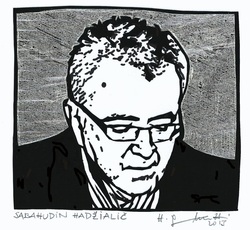
Copyright © 2014 DIOGEN pro culture magazine & Sabahudin Hadžialić
Design: Sabi / Autors & Sabahudin Hadžialić. Design LOGO - Stevo Basara.
Freelance gl. i odg. urednik od / Freelance Editor in chief as of 2009: Sabahudin Hadžialić
All Rights Reserved. Publisher online and owner: Sabahudin Hadžialić
WWW: http://sabihadzi.weebly.com
Contact Editorial board E-mail: [email protected];
Narudžbe/Order: [email protected]
Pošta/Mail: Freelance Editor in chief Sabahudin Hadžialić,
Grbavička 32, 71000 Sarajevo i/ili
Dr. Wagner 18/II, 70230 Bugojno, Bosna i Hercegovina
Design: Sabi / Autors & Sabahudin Hadžialić. Design LOGO - Stevo Basara.
Freelance gl. i odg. urednik od / Freelance Editor in chief as of 2009: Sabahudin Hadžialić
All Rights Reserved. Publisher online and owner: Sabahudin Hadžialić
WWW: http://sabihadzi.weebly.com
Contact Editorial board E-mail: [email protected];
Narudžbe/Order: [email protected]
Pošta/Mail: Freelance Editor in chief Sabahudin Hadžialić,
Grbavička 32, 71000 Sarajevo i/ili
Dr. Wagner 18/II, 70230 Bugojno, Bosna i Hercegovina



